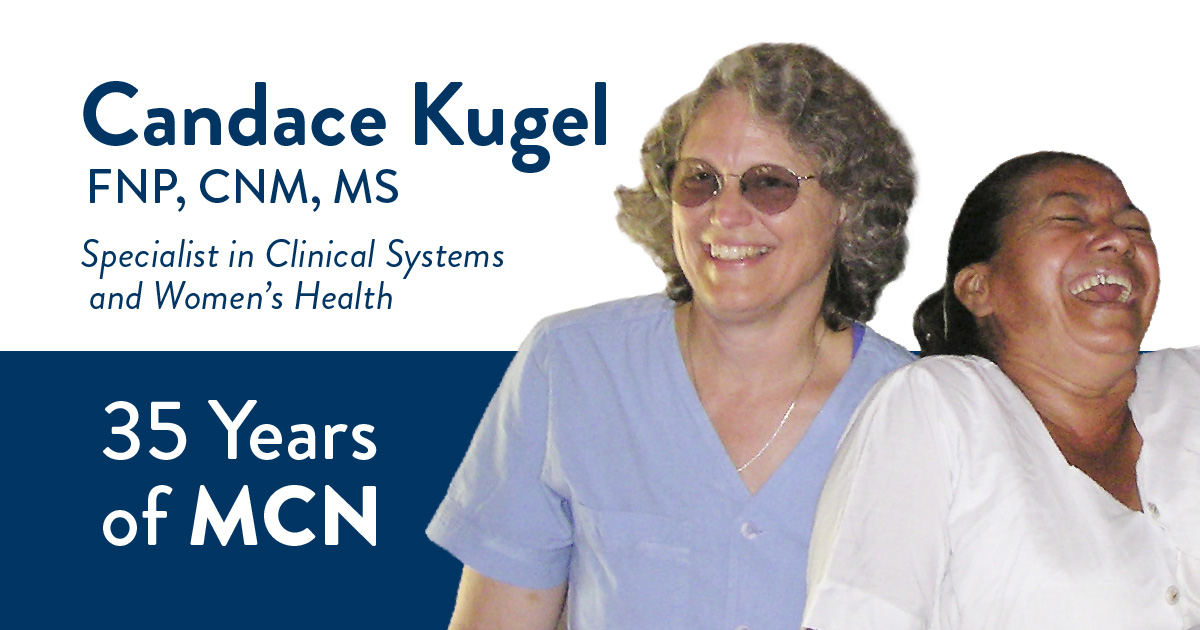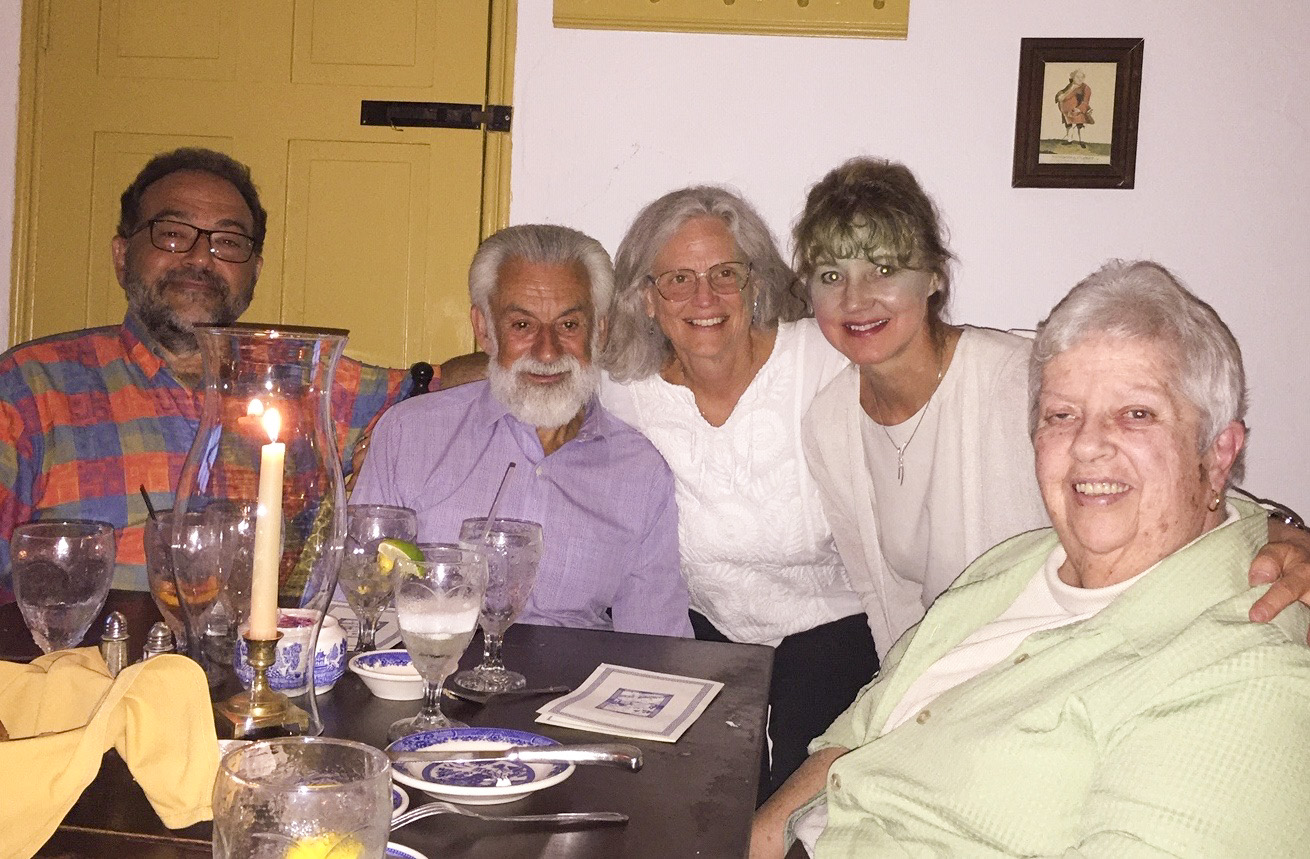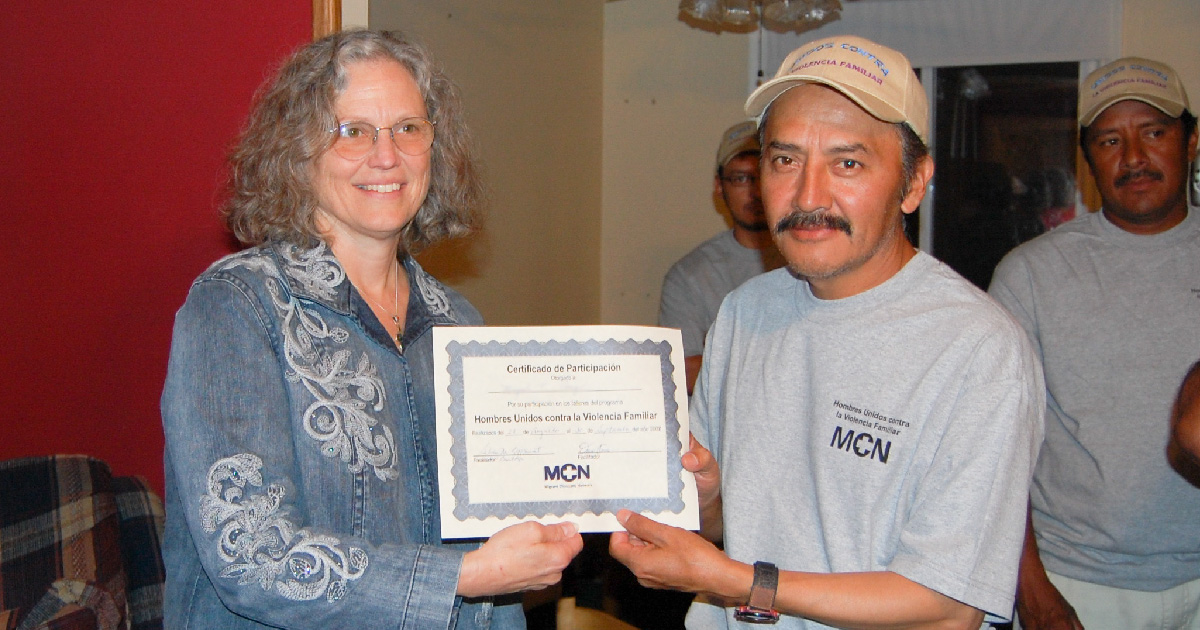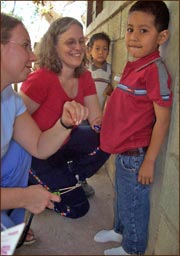Candace Kugel: A Life Serving Immigrant Women and Children

[Editor’s Note: Happy Anniversary, Migrant Clinicians Network! We continue to celebrate our 35th anniversary with profiles of MCN’s founding members. Here, we chronicle the career of Candace Kugel, FNP, CNM, MS, Migrant Clinicians Network’s Specialist in Clinical Systems and Women’s Health. Make sure to read previous months’ profiles of Karen Mountain, MBA, MSN, RN, Migrant Clinicians Network’s Chief Executive Officer and of Ed Zuroweste, MD, Founding Medical Director.]
Over the course of her decades of care for the underserved, Candace Kugel, FNP, CNM, MS, has delivered hundreds of babies, from Pennsylvania to Honduras, trained hundreds of clinicians to better serve their diverse communities, and provided direct care to farmworkers, immigrant workers, and their families. With such dedication to immigrants, it is not surprising that her path to migrant health began outside of the US. Her father worked for the State Department and her family lived abroad for part of her childhood. She spent two years in Panama, and two in Thailand. After those international childhood experiences, Kugel entered high school back in the US with a broader worldview and some proficiency in Spanish. “It was that background that made me interested in seeking out the migrant population,” she recalled. After college, she moved to Adams County, Pennsylvania -- apple country -- and worked for a family planning agency. “The local population was not generally receptive [to the migrant farmworkers] other than their direct employers. They were definitely viewed as ‘others,’” she recalled. Meanwhile, she fell in love with working with women. “The women’s health movement of the 70s was in full swing at that point, and I was definitely caught up in that,” she said. Working with farmworker women was the natural next step. “The two were hand-in-hand,” Kugel noted.
At the family planning agency, she worked under a nurse practitioner. “I had never heard of a nurse practitioner before, and I decided I wanted to be one,” she laughed. Eight years after graduating college, most of which she spent at the family planning agency, she returned to school to become a family nurse practitioner. For her practicum, she headed to an Indian reservation in Northern California, another rural experience with another underserved population. After graduation, her objective was to return to rural Pennsylvania to practice.
After graduation from NP school, Kugel had a new degree -- and no work. “I couldn’t find a job,” she exclaimed. “It was 1983 -- there were not nurse practitioners on every corner at that point in time. People said, ‘you’re a… what?’” She got a job at Planned Parenthood in Harrisburg, commuting there instead of giving up her rural home. One year later, “I was able to get into the migrant program,” she recalled. The migrant program was at that point run by Pennsylvania’s State Department of Health. She worked at evening clinics the program held at various rural locations across the state, while she continued with her day job. “Every night of the week was a different place. That’s how I met Eddie Z.,” she said, referring to Dr. Ed Zuroweste, who was offering evening clinics out of his own private practice. At the end of the migrant season, she suggested to Dr. Zuroweste that his private practice in Chambersburg needed a nurse practitioner -- and they agreed.
In the private practice, Kugel worked closely with the four doctor partners. “It was a time when family doctors did a lot of maternity care. So, I did, too,” Kugel said. “I did prenatal -- but I did everything but the delivery. Some people I would get to know really well; they would ask me to be there during the delivery. I would go, and stand around, and then I’d do the post-partum care.” That missing piece led Kugel to return to school again, this time to the Frontier Nursing University in Kentucky to become a midwife. She worked as a student in two practices, one doing home births with a mostly Amish and Menonite patient population, and another hospital-based practice. “It was a great combination of clinical experience that I got with very experienced midwives,” she recalled.

[Candace Kugel (center), Laszlo Madaras (left), and Ed Zuroweste at dinner with Keystone Health staff]
After finishing midwifery training, she found herself again heading into a profession that was fairly uncharted territory. “People asked, ‘a nurse what?’ There were no nurse midwives at the hospital [in Chambersburg] and they weren’t jumping at the opportunity,” she admitted. By the time she returned to Chambersburg, Dr. Zuroweste’s migrant program had evolved into a community health center called Keystone Health Center. Keystone supported Kugel through the process of getting privileges at the local hospital which took a year and a half. “The second midwife? It took six weeks. Ah, the glory of being a pioneer!” Kugel laughed.
After receiving privileges, Kugel was able to act as both family nurse practitioner and nurse midwife, caring for a population that included immigrant and migrant women through their pregnancies, delivering their babies, and caring for both mother and child after birth.
Kugel began going to migrant health conferences, where she learned about Migrant Clinicians Network and in the early 1990s, she joined the board of the National Rural Health Association, which funded a migrant health program that placed newly graduated nurse practitioners and physician assistants into migrant health centers for four month fellowships.

[Candace Kugel at a Hombres Unidos Contra la Violencia Familiar training in Pennsylvania in 2008.]
In 2001, after years of following and supporting MCN’s work as a constituent, Kugel joined the staff of MCN. One of the first things Kugel did was to bring in the migrant health fellowship under MCN’s care. For five years, she coordinated the fellowship and expanded it to include midwives and dental hygienists. She also became the go-to clinician at MCN for topics related to women’s health, clinical systems, and family violence in relation to migrant health. She wrote numerous articles for MCN’s in-print publication, Streamline, on these topics. Kugel also did program development, education and presentations for clinicians working in migrant health. Meanwhile, she continued to work as a nurse practitioner and also began doing technical assistance at health centers for the Health Resources and Services Administration. In the last ten years, Kugel has amplified her expertise in migrant nursing through several publications, including a chapter in a textbook on global health nursing.
Early in her career in Pennsylvania, a question continually nagged at Kugel when working with migrant farmworker patients: “How bad was it where you were, that you would come here and do the work that you do, and be treated the way you’re treated here?” She spoke Spanish, but she felt like something was missing -- a disconnect. So, Kugel pursued international work, interspersed with her US-based clinical work over the years. In the early 2000s, Kugel and Dr. Zuroweste began bringing nursing and medical students to Honduras, providing health care to rural communities.

[Candace on a trip to Honduras]
Kugel loved the trips -- but felt the work needed a change of focus. “After going to Honduras several times, it got to the point where I thought, ‘either I need to move here, or I need to do more to leave something behind when I’m not here.’ You feel like you’re doing great stuff, but then you leave, and you think, what’s going to happen when we’re gone?” Kugel began giving classes to local traditional midwives, using resources like the Hesperian Health Guides. Then she discovered a curriculum developed by the American College of Nurse-Midwives focused on training midwives and community health workers on risk management around maternity care. She traveled widely, training people to train others with the curriculum, under the ACNM. Her trainings took her to Haiti, Guatemala, Ecuador, and Argentina. Around the same time, while attending language school in Guatemala, she stumbled upon a birth center there. She joined the board of the birth center, supporting the work of attending births in Guatemala despite being thousands of miles away from her day-to-day work in Pennsylvania.
“Spending time in the communities like where [my patients] came from helped to fill in the gaps for me, both in terms of seeing what life was like there, but also learning about their health care systems, practices, and beliefs,” she reflected. Eventually, over the years, Kugel’s international work gave her the perspective and understanding she craved -- and also cemented long-lasting and deeply meaningful relationships with families that she visited, year after year, in Honduras. She continues her international work. In 2017, Kugel joined Dr. Zuroweste in a CDC-funded screening of all adults on one island of the Marshall Islands for for tuberculosis, leprosy, hypertension, diabetes, and hyperlipidemia, in an attempt to break cycles of illness on the island. Today, Kugel continues to work for MCN -- “part-part time” she quips -- in addition to traveling around the country for her HRSA site visit work. Through her work locally and abroad, through MCN and in the clinic, Kugel has improved the lives of the rural working-class people around her. MCN is proud to have Kugel, if only “part-part time”, as one of our migrant clinician founders who remain with us, 35 years later.
MCN is overjoyed to announce the launch of the Kugel & Zuroweste Health Justice Award!
Join us in honoring Candace and Ed, and encouraging new leaders to continue the vital fight for health justice by donating to the effort.
Like what you see? Amplify our collective voice with a contribution.
Got some good news to share? Contact us on our social media pages above.
Return to the main blog page or sign up for blog updates here.
- Log in to post comments
